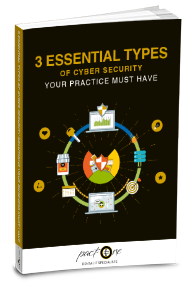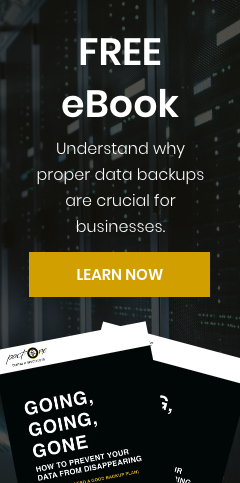Healthcare organizations, including small- to medium-sized dental clinics, store a huge amount of patient data, which makes them a prime target for cyberattacks. One of the most successful and most threatening methods of a cyberattack is malware. Malware is software created by hackers with the intent of stealing data, damaging systems or devices, or both.
Symantec’s 2019 Internet Security Threat Report shows a staggering 25% increase in cyberattacks using malware. Without the proper security measures, the effects of malware on your dental practice can be costly and devastating.
Types of Malware
There are various types of malware cybercriminals use to launch a cyberattack. These include:
- Viruses
- Trojan horses
- Worms
- Spyware
- Command and control
- Ransomware
How can malware affect your business?
The damage to your dental practice resulting from a cyberattack largely depends on the type of malware used, the device that was infected, and the data stored on that specific device. Below are some ways malware can hurt your dental practice:
#1. Disruption of operations
One way malware can hurt your business is by disrupting its daily operations. Computer worms, such as Stuxnet, are coded to bring entire networks down. Distributed denial-of-service (DDoS) attacks, on the other hand, are designed to overwhelm the normal flow of internet traffic of a target website. If your patients are unable to access your website, or if your network system goes down for some time, you can be looking at an enormous loss of profit and revenue.
#2. Stolen data
Some types of malware are designed for the sole purpose of stealing data. These can infect your network computers through a phishing attack and steal private data about your dental clinic, staff, and patients. Hackers can then sell the stolen data on the dark web, or they can use it for illegal online transactions, blackmail, and identity theft.
#3. Extortion
To cybercriminals, private patient information and your business data are worth a lot of money, which is why more and more hackers are targeting businesses in the healthcare sector. Hackers will use malware called ransomware to infect and encrypt all the data stored in your network and prohibit access until you pay a specific amount.
#4. Keylogging
A keylogger is software designed to track your keyboard activities. Cybercriminals can use this software to record the information that you type into your computer, such as credit card information, bank details, and login credentials. They can then use this information to steal your identity, access your credit card and bank account, and even extort money from your family and friends. One good example of a keylogger is the Zeus malware.
#5. Defacing your site
This ties in closely with DDoS attacks. When cybercriminals gain unauthorized access to your website's editing tools, they can replace your site's content with their own messages or delete it altogether. And as with DDoS attacks, hackers defacing your site can also prevent you and your patients from accessing it.
#6. Destroying your reputation
Cybercriminals who can illegally access your site and social media accounts can spread false information or send out spam emails that can potentially ruin your image and destroy patient trust.
How can you protect your dental practice?
As a business owner, your goal is to get the right cybersecurity solution to detect and prevent any malware from infecting your network system. However, if you don't have reliable IT staff to fortify your clinic's network security, hackers will find it relatively easy to access your system.
This is where a trusted managed IT services provider like Pact-One comes in. We will provide your network with multiple layers of security to ensure your data is safe and out of reach. If you're not sure where to start, just give us a call and we'll help get you on the right track to a more secure network.
Download our free eBook!
Learn how to prevent a data breach by reading our free eBook: 3 essential types of cyber security



